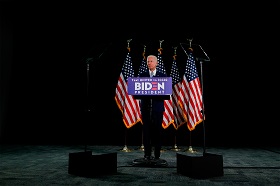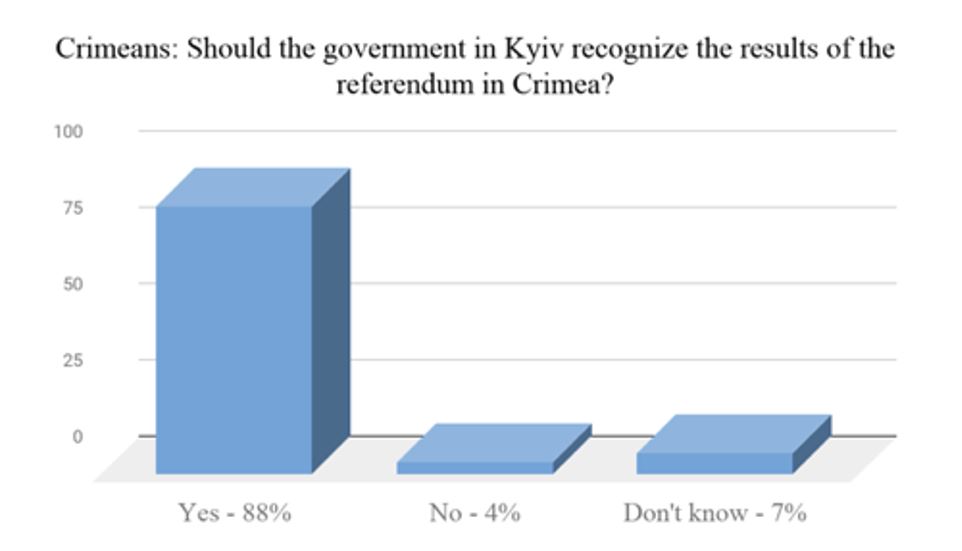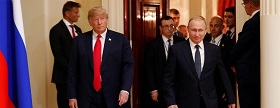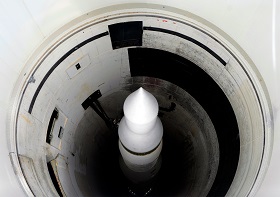Recommendations for American Policy and Priorities Towards Russia
(votes: 8, rating: 4.63) |
(8 votes) |
Russia's foreign policy analyst, Founder of the Russian Public Affairs Committee
Since the end of World War II, the United States has loosely pursued a strategy of "liberal hegemony," focusing on the preservation of America's primacy, expanding the country's sphere of influence, and ostensibly promoting liberal values such as democracy and human rights. The problem with this strategy has been two-fold in both theory and practice.
When it comes to Russia, a clear, coherent strategy has been virtually non-existent. There has been a failure on behalf of administrations in Washington to demarcate their priorities and take actions that complement America's purported values in Moscow's relationship. The United States' foreign policy towards Russia has failed and will continue to fail until policymakers in Washington develop a coherent strategy that identifies their priorities and embeds them into action.
That said, a strategy cannot exist alone. It must exist within the context of an overarching principle that will guide that strategy and motivate those tasked with its implementation. Unfortunately, the United States has long operated without such a principle, and this is why American foreign policy has repeatedly faltered and erred its way into endless wars, failed democracy promotions, and a crisis of credibility. If America's leadership wants to change direction and implement a strategy that effectively uses its resources and position, it must start by adopting an overarching principle.
Since the end of World War II, the United States has loosely pursued a strategy of “liberal hegemony,” focusing on the preservation of America’s primacy, expanding the country’s sphere of influence, and ostensibly promoting liberal values such as democracy and human rights. The problem with this strategy has been two-fold in both theory and practice. In theory, "liberal hegemony" has existed in a vacuum without a guiding principle or a Northern Star to give it direction. This situation has inevitably ushered in its problem in practice. Different administrations have come and gone, and in doing so, implemented sporadic variations of this strategy that have lacked coherence in both articulation and implementation.
When it comes to Russia, a clear, coherent strategy has been virtually non-existent. There has been a failure on behalf of administrations in Washington to demarcate their priorities and take actions that complement America's purported values in Moscow's relationship. The United States' foreign policy towards Russia has failed and will continue to fail until policymakers in Washington develop a coherent strategy that identifies their priorities and embeds them into action.
That said, a strategy cannot exist alone. It must exist within the context of an overarching principle that will guide that strategy and motivate those tasked with its implementation. Unfortunately, the United States has long operated without such a principle, and this is why American foreign policy has repeatedly faltered and erred its way into endless wars, failed democracy promotions, and a crisis of credibility. The result of policy without principle is a colossal waste of time, energy, and resources that could be put to better use and better serve the American people. If America's leadership wants to change direction and implement a strategy that effectively uses its resources and position, it must start by adopting an overarching principle.
Now it goes without saying that there are hundreds of principles to choose from. That said, there is only one principle that captures the American people's spirit and can deliver better outcomes than those seen today. It's the same principle swaddled inside the American dream from coast to coast, from California to North Carolina. It's a principle America's children learn from an early age: to shoot for the stars but also to be aware and altruistic to the people around them. It's the same principle that led great Americans to do great things, and if it's adopted as the moral compass for American foreign policy, it will lead America to do great things.
In academic vernacular, this mysterious principle would be cataloged as some form of utilitarianism: "to do the most good for the most people, starting with yourself and the people around you." It's not realist or liberal, but it's somewhere in the forgotten middle. It calls on policymakers to prioritize the well-being of their citizens (yourself) and the citizens of other nations (the people around you). The principle itself is not novel. It's already present in mainstream ideas like corporate social responsibility, where we see great American corporations like Google and Microsoft working to maximize profit while at the same time maximizing the people and communities they serve. It's even somewhat present in the Trumpian idea of "America first," where the idea is to prioritize Americans but still positively impact the outside world.
This principle should be overarching in America's foreign policy strategy, and it should be represented by a paradigm shift in priorities. Those priorities should be ranked in the following order:
Security: The security of the American people should be paramount. Policymakers should seek an end to the new Cold War, nuclear arms race, and regime change wars that threaten ordinary Americans' security. The United States should redirect its resources to build up its communities and provide security in the form of healthcare, education, and other areas that promote economic security for Americans. Doing so will make Americans better off, but it will also make the world more peaceful and prosperous.
Stability: Safeguarding the global market's balance and promoting peace should be the United States' second-highest priority. The United States should stop pursuing regime change and waging economic warfare via sanctions, destabilizing otherwise stable countries, and causing immense suffering in the process. Even from the vantage point of "America First," the United States rarely benefits from destabilization in other countries. American businesses find it harder to operate in such markets, and American taxpayers often foot the bill for overseas adventurism.
For years, the United States has relied on a form of calculus that assumes peace is only achievable through strength, yet peace has not been an outcome of American foreign policy. This cycle of perpetual war and intervention in the hopes of one day securing tranquility has delivered the opposite. It's produced devastation and destruction, while at the same time making the United States weaker financially and militarily. That's because the equation is backward. The correct formula is that strength is only achievable through peace and stability. When stability is a priority, there is more opportunity for growth, development, and human flourishing, all of which are in the American people's best interest.
Values: The United States should continue to promote its values, namely democracy, free trade, and respect for human rights. However, in prioritizing its values, Washington must also prioritize consistency. There cannot and should not be a disconnect between American "values" and American foreign policy in action. The simple fact is that values without consistency are dead. When American values are applied arbitrarily, it undermines America's reputation, power, and influence. It gives America's enemies fodder to feed on, which sows mistrust among would-be partners and allies. Past administrations have oftentimes compromised the cause for freedom and corroded America's brand on the world stage by failing to exercise consistency in both word and deed. If the United States wants to have an effective foreign policy strategy, then it must be for democracy, free trade, and respect for human rights in all cases.
These three priorities should be front and center in how the United States approaches foreign policy that directly and indirectly concerns Russia. There are straightforward and concrete ways to apply these priorities while being faithful to the overarching principle of doing "the most good for the most people, starting with yourself and the people around you." These priorities logically imply a much-needed shift in emphasis. Prioritizing security, for example, means that the United States must focus on de-escalating tensions with Moscow in dialogue, diplomacy, and evaluating which policies are currently making Russia-U.S. relations less secure. Prioritizing stability will mean emphasizing peace through compromise and partnering with Russia to resolve existing conflicts worldwide. And lastly, a priority on values will necessitate that decision-makers recognize the areas in which the Kremlin's policies are actually in line with American values — as in the case of Crimea.
Policy Recommendations

President Joe Biden and Russia
Once equipped with an overarching principle and a set of priorities that enshrine that modus operandi, the next step is to turn those priorities into policy. The following policy recommendations provide a preliminary framework for normalizing Russia-U.S. relations.
Restore Broad-Based Dialogue
Since 2014, there has been a significant decline in Russia-U.S. dialogue's quality, frequency, and productivity. Instead of attempting to work out the differences between one another, the United States has stepped away from any semblance of real diplomacy with Moscow and has instead tried unsuccessfully to isolate Russia through sanctions and other means. That strategy has made matters worse, while simultaneously failing to achieve anything of real substance.
The United States gains nothing by continuing a policy approach that doesn't work. What the United States should do instead is reinstate a policy of engaging Russia on all matters where there are overlapping interests. This policy should include high-level, regular dialogue between both countries' executive branches as well as policymakers from Congress and Russia's Federal Assembly. That dialogue can start with mutually beneficial topics for both countries and graduate to issues that are circumstantially harder to reconcile.
Whether it's arms control, fighting terrorism, climate change, or ensuring economic stability across the world — the two sides simply need to engage in dialogue to find common ground. That common ground will likely lead to stabilizing solutions that advance the interests and security of both countries.
Renew the New START Treaty and Promote Broader Cooperation on Arms Control
In the past two decades, there has been much progress lost in the realm of arms control between the United States and Russia. Despite a history of successful diplomacy on this subject, its current status has been jeopardized by the dissolution of important treaties between the two countries designed to foster deterrence and strategic security. From the United States' withdrawal from the Anti-Ballistic Missile Treaty (ABMT) to the United States' most recent withdrawal from the Intermediate Nuclear Forces Treaty (INF) in 2019 — a lot of ground has been lost, making the United States less secure and the world more vulnerable to the threat of nuclear war.
In 2021, the limits on nuclear weapons set by the New START treaty — the only remaining nuclear arms reduction pact between Russia and the United States — are set to expire. The United States should begin negotiating immediately to extend the New START treaty, to reduce the risk of war and prevent a nuclear arms race from happening.
President Putin has already offered to extend the New START without any preconditions immediately. This behavior demonstrates a serious willingness on Russia's part to preserve the Soviet-era compromise that limits the number of deployed nuclear forces and provides a vital verification system that holds both parties in check. The United States should match that willingness to parley and use the New START extension as a springboard to advance other nuclear nonproliferation priorities, such as bringing China and other countries into the fold under such agreements.
Russia-U.S. cooperation towards nonproliferation objectives that involve bringing in other countries to the table has already proven to be incredibly effective. Take, for example, the 2015 Joint Comprehensive Plan of Action (JCPOA) or more popularly known as the Iran Nuclear Deal. The two countries' teamwork was instrumental in making that agreement possible. Russia was able to act as a mediator and garner Iran's trust on behalf of the Obama administration. Moscow played it's conciliatory role effectively, and it can do it again to achieve mutual goals with Washington. However, to do so, both the United States and Russia must first get their house in order diplomatically around arms control issues.
Recognize & Remove Sanctions that Specifically Target Crimea
Despite the mistaken narrative that Washington currently embraces, that Crimea was taken by Russian brute force and illegally annexed against its will, there is actually more than sufficient evidence to conclude that the Crimean Referendum was free, fair, and representative of what Crimeans want. America's current policy fails at being a force for good and striving for conflict resolution. It denies an obvious reality and targets ordinary, innocent people with a blanket embargo that is as strategically flawed as it is useless.
In terms of that evidence, there is an abundance of polling indicating that Crimeans both before and after the 2014 referendum were largely supportive of reunification with Russia.
First, multiple polls conducted by the United Nations Development Program (UNDP) between 2009 and 2011 show that a majority of Crimeans favored reunifying with Russia well before the 2014 referendum ever took place. Two other studies that were conducted shortly after the referendum found that Crimeans regard the referendum as fair and accurate. Gallup Poll found that 82% of Crimeans believe “the referendum reflects most Crimeans’ views.” Pew Research Center found that 91% of Crimeans felt the referendum was free and fair, and that 88% felt the referendum should be recognized.
And third, by all indications, Crimeans seem satisfied with reunification. According to the most recent poll, 89% of Crimeans still support reunification and would vote again to reunite with Russia as of 2019.

Source: 2014 Spring Pew Global Attitudes Survey, Pew Research Center, May 2014
For those who value democracy and care about its message, for those who value policy based on principles and reality — there is a remedy, and it starts with consistency. It begins with embracing democracy in all cases, including Crimea. The United States should officially recognize the Crimean Referendum and lift the devastating sanctions that punish ordinary people in Crimea for the crime of exercising democracy.
In doing so, America's foreign policy will embrace all three of the priorities aforementioned while staying true to the principle of maximizing the most good for the most people. It will make Americans safer by de-escalating an unnecessary dispute with Moscow. Instead of trying to destabilize Crimea with oppressive sanctions so that the peninsula will miraculously turn its back on Russia and move to re-embrace Ukraine, lifting those sanctions will endow the region with a permanent resolution and allow American companies to reenter the Crimean market. More importantly, by recognizing and lifting the embargo on Crimea, the administration that chooses to do so will be reuniting American foreign policy with American democratic values.
Remove Sanctions on Russia Broadly

Why Should Putin Help Trump?
In 2012, the United States Congress passed the Magnitsky Act, which was effectively the first round of sanctions levied against Russia. Seen from Russia's perspective, the Magnitsky Act was uncharitable and needlessly antagonistic, punishing Russia for an internal incident that had no relation to the United States. Since then, policymakers in Washington have levied sanction after sanction on Russia, oftentimes unjustifiably and without a warrant. And after more than seven years of economic warfare waged against Russia, it is becoming increasingly apparent that this form of financial pressure is not working. The United States has nothing to show for beyond mildly harassing the Russian economy. There have been no foreign policy victories for the United States on account of sanctions, nor are such victories closer to being attained. Russia, for its part, has not conceded an inch, the Putin administration has not been defenestrated from power, and there is very little chance that either of those things will happen anytime soon.
The failure of sanctions as a policy should not come as a surprise. According to research on the efficacy of sanctions, sanctions have about a 4% success rate in achieving their stated purpose. What's worse, study after study shows that sanctions not only fail to achieve their aims in many cases, but they actively reduce life expectancy through, for example, constraining access to medicine. This would suggest that sanctionary warfare's policy contradicts America's concurrent mission to be a force for good in the world.
However, when it comes to Russia, sanctions haven't just failed — they have been counterproductive to winning friends and influence inside Russia. By truncating its GDP growth and the prospects of much-needed wage growth, sanctions have gradually hurt ordinary Russians than Russia's political elite and so-called "oligarchs." And as a result, average Russians have become significantly more skeptical of the United States since American policymakers started substituting diplomacy for sanctions.
For example, in 2012, the United States enjoyed a 56% favorability rating among Russians. Now according to the Pew Research Center, United States favorability among Russians is just half of that.
What this means is that advocates of sanctions have been categorically wrong. Instead of forcing a change in Russia's behavior from the ground up by worsening its economic conditions to the point that ordinary citizens demand a capitulation in their government's foreign policy, sanctions have produced a sort of solidarity among Russians that holds the United States responsible for its economic woes. Russians don't hold their government at fault because American sanctions have been arbitrary and unjustified, as in the case of the Magnitsky Act, Crimea, and the Nord Stream 2 Pipeline.
This indicates that sanctionary warfare as a policy is failing on all fronts: morally, theoretically, and in practice. However, it doesn't have to be this way. Many Americans want to see the United States as striving to be a force for good in the world but to do that, American leaders have to build bridges and be ready to make reasonable concessions. The tandem of diplomacy and compromise has far more success stories than sanctions ever will. That's because compromise inspires trust, which is the foundation for any sort of effective partnership.
The United States should do just that - inspire trust in pursuit of a peaceful partnership with Russia that addresses issues ranging from global security to climate change to maintaining stability in the global economy. To do so, Washington should remove sanctions on Russia broadly and immediately begin a policy of rapprochement. This will give the United States real opportunities to influence Russia politically, while also creating the conditions to work together in resolving conflicts in places like Syria, Ukraine, Yemen, and Libya, where both countries have the combined leverage to influence a pathway to peace and stability. Doing so will also be good for American businesses, hundreds of which have lost revenue and investments as an unintended consequence of sanctions. More importantly, abolishing sanctions will put America's foreign policy back on track, back to exercising consistency, promoting human life, and being a much-need force for good in the world.
Halt NATO’s Eastward Expansion

The World after START
Since the fall of the Soviet Union, the United States has had ample opportunity to foster a partnership with Russia that would be beneficial for both countries. Unfortunately, past administrations in Washington have squandered such opportunities by inventing and exaggerating threats inside Russia that do not exist. Nowhere has this been more palpable than in the expansion of NATO since 1991, which has relied on Russia's atavistic caricatures to justify its expansion and the improvident amount of spending that Congress allocates to the war chest each year. For example, Americans are often told that Russia's invasion of the Baltic nations is imminent, that President Putin is just waiting for the right time to move and declare an all-out checkmate on Europe. Such justifications attempt to label Russian foreign policy as posing an existential threat to be countered and subverted, but what it really represents is a flaw in thinking and a dangerous misinterpretation of the threat that Russia actually poses.
That is, despite this mainstream rhetoric that labels Russia as "rogue" and "aggressive," the truth is that Moscow is actually more or less reactionary concerning its neighbors and the United States more broadly. Virtually every major foreign policy move the Kremlin has made in the past two decades can be seen as a countermove to Western policies that have more often than not shown disregard for Russia's vital interests. Russia is not interested in invading Europe or erecting some former glory of the Soviet Union. President Putin and Russia at-large have never expressed such intentions, nor does Russian foreign policy fit this bellicose description that it's often given. What Russia is interested in is protecting its own economic and security interests, not least of which is its relationship with NATO.
As is well-known, NATO's expansion since the fall of the Soviet Union has been a major source of hostility between the United States and Russia, with the latter viewing the steady encroachment of weapons and troops towards its border as an existential threat. Past administrations in Washington have failed to make security assurances that would quell Russia's anxieties about NATO's expansion and even used rhetoric framing Russia as NATO's 21st-century reason for being. This is another area where past policy has failed in regards to Russia and where current policy should be recalibrated to embrace reality.
That is not to say that NATO is obsolete or that it is void of purpose. Quite the opposite. The Alliance plays an incredibly unique and important role in American national security that should not be underscored. However, that being said, NATO's current formulation does not embrace reality for what it is in regards to the threat posed by Russia and it should not be expanded to include Georgia and Ukraine, as doing so would serve no practical purpose and only exacerbate relations with Moscow. Although NATO has certainly made its fair share of promises to Georgia and Ukraine regarding membership, American policymakers should understand that these two countries are not vital to U.S. national security and that including them into the Alliance would pose more risk than reward. Both countries have unresolved territorial disputes and unstable political elements that would risk drawing the United States into a conflict that the American public would have little appetite for.
More importantly, the conditions for joining Europe's foremost security infrastructure are clear: new members have to be voted in unanimously, possess a functioning democratic political system based on a market economy; a political system that fairly treats its minority populations; a commitment to resolve conflicts peacefully; an ability and willingness to make a military contribution to NATO operations; and a commitment to democratic civil-military relations and institutions. In regards to virtually all of these criteria, Georgia and Ukraine simply miss the mark.
Instead of entertaining the prospect of expanding NATO eastward, the United States should work on reformulating the Alliance to address real threats to its collective security and look for avenues to partner with Russia in resolving conflicts and security risks in and around Europe. Doing so will create far better conditions for Russia-U.S. relations, it will alleviate anxieties on Russia's part, and promote U.S. national security interests in Europe.
(votes: 8, rating: 4.63) |
(8 votes) |
Russia and the US are becoming toxic to each other
Why Should Putin Help Trump?For Russia, this election in relative terms will mean less than for many other international players
President Joe Biden and RussiaRelations will continue to be built on the basis of the “lowest common denominator,” which effectively means the continuation of the current course of confrontation
The World after STARTWe are witnessing the dawn of a new era in our nuclear world





